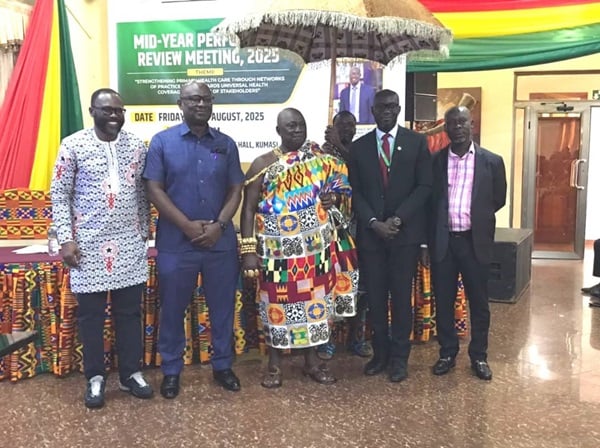The Ashanti Region of Ghana is grappling with a distressing surge in maternal mortality, experiencing a 51% increase in maternal deaths during the first half of 2025 compared to the same period in 2024. This translates to 232 maternal deaths per 100,000 live births in the first half of 2025, a sharp rise from the 153 deaths recorded in 2024. This alarming trend raises serious concerns about the region’s progress toward achieving the Sustainable Development Goal (SDG) target of 70 maternal deaths per 100,000 live births by 2030, highlighting the urgent need for targeted interventions.
The Ashanti Regional Director of Health, Dr. Frank Adomako-Boateng, attributes this surge to systemic challenges within the healthcare system, particularly focusing on the uncoordinated referral processes and the inadequate capacity of peripheral health facilities. These inadequacies hinder the timely and effective transfer of patients requiring specialized care, contributing to preventable deaths. A robust and efficient referral system is crucial for ensuring that pregnant women experiencing complications receive the necessary higher-level care in a timely manner. The lack of adequate resources and capacity at peripheral health facilities further exacerbates the situation, limiting their ability to provide essential maternal healthcare services.
Addressing this escalating crisis necessitates a multi-pronged approach. Dr. Adomako-Boateng emphasizes the critical need for implementing a functional gatekeeper system, which acts as a crucial first point of contact for pregnant women, providing initial assessments, basic care, and facilitating timely referrals when necessary. Effective referral filters are essential for streamlining the referral process, ensuring that patients are directed to the appropriate level of care without unnecessary delays. Equally important is the need to invest in peripheral health centers, equipping them with the necessary resources, including skilled personnel, essential medical equipment, and adequate supplies, to effectively manage routine pregnancies and address common complications at the primary care level.
The current situation underscores the critical role of mid-year performance reviews in providing a crucial platform for assessing progress, identifying areas for improvement, and implementing corrective measures. These reviews serve as vital checkpoints, allowing health officials to monitor trends, evaluate the effectiveness of interventions, and make data-driven decisions to enhance healthcare delivery. They also provide opportunities for collaborative discussions among stakeholders, including healthcare professionals, policymakers, and community representatives, to share insights, identify challenges, and develop strategies to address the identified gaps in maternal healthcare services.
While acknowledging the severity of the situation, Dr. Adomako-Boateng commends the dedication and hard work of the health workers in the Ashanti Region, urging them to persevere in their efforts to improve maternal health outcomes. Their commitment and tireless efforts are crucial in providing essential healthcare services, supporting pregnant women, and contributing to the overall health and well-being of the community. Their dedication is a testament to their commitment to ensuring a healthier nation. However, their efforts alone are insufficient without the necessary systemic support and resources.
The Ghana Health Service (GHS) is committed to addressing this concerning trend and reducing maternal mortality. The GHS recognizes the urgency of the situation and is committed to implementing effective strategies to improve maternal health outcomes. This commitment involves strengthening the referral system, enhancing the capacity of peripheral health facilities, and empowering healthcare workers with the necessary skills and resources to provide quality care. The ultimate goal is to ensure that every pregnant woman has access to timely and effective care, contributing to a significant reduction in preventable maternal deaths and move closer to achieving the SDG target. This requires collaborative efforts involving all stakeholders, including government agencies, healthcare providers, and the community, working together to create a supportive environment for maternal health.


